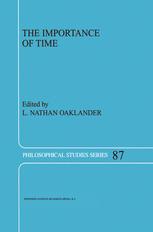First, the top Bush insider mocked the journalist and all those "in what we call the reality-based community," i.e., people who "believe that solutions emerge from your judicious study of discernible reality." Suskind's attempt to defend the principles of reason and enlightenment cut no ice with the Bush-man.
"That's not the way the world really works anymore. We're an empire now, and when we act, we create our own reality," he said. "And while you're studying that reality, we'll act again, creating other new realities, which you can study too, and that's how things will sort out. We're history's actors ... and you, all of you, will be left to just study what we do."
Anyone with any knowledge of 20th-century history will know that this same megalomaniacal outburst could have been made by a "senior adviser" to Hitler, Stalin, Mussolini or Mao. Indeed, as scholar Juan Cole points out, the dogma of the Bush Cult is identical with the "reality-creating" declaration of Mao's "Little Red Book": "It is possible to accomplish any task whatsoever." For Bush, as for Mao, "discernible reality" has no meaning: Political, cultural, economic, scientific truth -- even the fundamental processes of nature, even human nature itself -- must give way to the faith-statements of ideology, ruthlessly applied by unbending zealots.
Thus: The conquered will welcome their killers. The poor will be happy to slave for the rich. The Earth can sustain any amount of damage without lasting harm. The loss of rights is essential to liberty. War without end is the only way to peace. Cronyism is the path to universal prosperity. Dissent is evil; dissenters are "with the terrorists." But God is with the Leader; whatever he does is righteous, even if in the eyes of unbelievers -- the "reality-based community" -- his acts are criminal: aggressive war that kills thousands of innocent people, widespread torture, secret assassinations, rampant corruption, electoral subversion.
Indeed, the doctrine "Gott mit Uns" is the linchpin of the Bush Cult. Tens of millions of Americans have now embraced the Cult's fusion of Bush's leadership with Divine Will. As a Bush volunteer in Missouri told Suskind: "I just believe God controls everything, and God uses the president to keep evil down ... God gave us this president to be the man to protect the nation at this time." God appointed Bush; thus Bush's acts are godly. It's a circular, self-confirming mind-set that can't be penetrated by reason or facts, can't be shaken by crimes and scandals. That's why Bush's core support -- comprising almost half of the electorate -- stays rock-solid, despite the manifest failures of his administration. It's based on blind faith, on poisonous fantasy: simple, flattering ("We're uniquely good, God's special nation!"), comforting, complete -- so unlike the harsh, bewildering, splintered shards of reality.
This closed mind-set is constantly reinforced by the ubiquitous right-wing media -- evoking the threat of demonic enemies on every side, relentlessly manufacturing righteous outrage -- and by Bush's appearances (epiphanies?) at his carefully screened rallies, where even the slightest hint of demurral from his Godly greatness is ruthlessly expunged. For example, three schoolteachers were ejected from a Bush rally under threat of arrest last week. Not for protesting -- they hadn't said a word -- but merely for wearing T-shirts that read, "Protect Our Civil Liberties." Thus the faithful "create the new reality" of undivided loyalty to the Leader.



